Food Technology
Overview
Fulbrook’s Key Stage 3 (KS3) curriculum, Food Preparation and Nutrition is an essential subject that equips students with knowledge and skills related to food, nutrition, and healthy eating. This subject aims to promote a holistic understanding of food, covering the following aspects:
- Basic Nutrition Knowledge: KS3 students learn about the essential nutrients our bodies require, including carbohydrates, proteins, fats, vitamins, and minerals. They understand the functions of these nutrients and their sources in different foods.
- Healthy Eating: The curriculum emphasizes the importance of a balanced diet and its role in maintaining good health. Students are taught to make informed choices about food, considering factors like portion sizes and food groups.
- Food Safety and Hygiene: Students learn about safe food handling practices to prevent foodborne illnesses. This includes topics like proper handwashing, food storage, and cooking temperatures.
- Food Preparation Techniques: Students gain hands-on experience in food preparation, including chopping, slicing, and cooking. They also learn various cooking methods, such as grilling, baking, and boiling.
- Recipe Analysis: Students are encouraged to analyze recipes for their nutritional content and understand how different cooking methods can impact the nutritional value of a dish.
- Dietary Requirements: The curriculum covers special dietary requirements, such as vegetarianism, veganism, and food allergies. Students learn how to adapt recipes to meet specific dietary needs.
- Food Sustainability: KS3 students explore the concept of sustainable food production and its impact on the environment. They learn about food miles, food waste reduction, and the importance of choosing locally sourced and seasonal foods.
- Cultural and Ethical Considerations: Students are introduced to the cultural diversity of foods and eating habits worldwide. They also discuss ethical issues related to food production, such as fair trade and animal welfare.
- Food Science: Basic food science concepts are introduced, including the role of ingredients like yeast in breadmaking and the science behind emulsions in salad dressings.
- Practical Cooking: Practical cooking lessons are a fundamental part of the curriculum, allowing students to apply their knowledge and skills in the kitchen. They prepare a variety of dishes, gaining confidence in meal preparation.
Overall, Food Preparation and Nutrition curriculum provides students with a well-rounded understanding of food, nutrition, and cooking techniques, empowering them to make informed and healthy food choices throughout their lives.
Year 7 Curriculum Overview
The Food Preparation and Nutrition curriculum for Year 7 students (typically aged 11-12) introduces fundamental concepts of food and nutrition. Students review and focus on Food Safety in relation to the 4C’s. Students explore the importance of balanced diets, including the roles of various food groups in promoting health and advice for including them in the diet.. They learn about essential cooking techniques and kitchen safety practices, enabling them to prepare basic dishes. Year 7 students also begin to understand the origins of food, cultural aspects of eating, and sustainability in food production, thinking about food wastage. This foundational knowledge equips them with the skills to make healthier food choices, cook simple meals, and appreciate the wider implications of food consumption in their lives and the environment.
The above practical skills acquired (which encompass, but are not restricted to) in Year 7 include cooking the following recipes:
Banana Bread
Stir Fry
Potato Salad and Olive, with Homemade Mayonnaise
Sausage and Tomato Frittata
Pineapple Upside Down Cake
Vegetable Soup
Bread Rolls (Bread Making)
Potato, Chickpea and Spinach Curry
Fruit or Cheese Scones
Koftas
Chicken or Vegetable Wrap
Jam Tarts
Bombay Potatoes
Cheese and Vegetable Frittatas
Savoury Rice
Thai Green Curry
Vegan Chickpea Curry
Year 8 Curriculum Overview
The Food Preparation and Nutrition curriculum for Year 8 students (typically aged 12-13) builds upon the foundational knowledge from Year 7. Year 8 students delve deeper into the principles of nutrition - focussing a lot on the different macronutrients, exploring the impact of food choices on health and well-being. They develop advanced culinary skills and techniques, enabling them to prepare more complex and varied meals. Additionally, students learn about food safety regulations and practices in greater detail. This curriculum prepares them to make informed, responsible, and health-conscious dietary decisions.
The above practical skills acquired (which encompass, but are not restricted to) in Year 8 include cooking the following recipes:
Healthy Breakfast Muffins
Spaghetti Bolognese
Victoria Sponge Cake
Chicken Curry
Lamb Rogan Josh
Burgers
Bombay Potatoes
Chilli Con Carne with Hassel Back Potatoes
Macaroni Cheese
Quiche
Chocolate Cake
Samosas
Carrot Cake
Falafels
Pizza
Shepherd's Pie
Spicy Bean Burgers
Year 9 Curriculum Overview
The Food Preparation and Nutrition curriculum for Year 9 students (typically aged 13-14) builds upon prior knowledge and skills. Year 9 students refine their culinary expertise, mastering advanced cooking techniques and creative recipe adaptations. They also study food science, delving into the chemical and biological aspects of cooking. Sustainability and ethical considerations in food production continue to be emphasized. Students focus and go more in debt on Safety looking at pathogenic bacteria, types of hazards in food preparation and how to avoid them. This curriculum equips students with comprehensive knowledge, practical skills, and a heightened awareness of the broader factors which impact on food choices preparing them for a lifelong journey of healthy and sustainable eating. Students focus on multicultural and British food.
The above practical skills acquired (which encompass, but are not restricted to) in Year 9 include cooking the following recipes:
Swiss Roll
Toad in the Hole
Fajitas
Tandoori Chicken and Rice
Caesar Salad
Risotto
Fresh Pasta and Sauce
Pasty
Hollandaise Sauce
Quiche
Chelsea Buns









